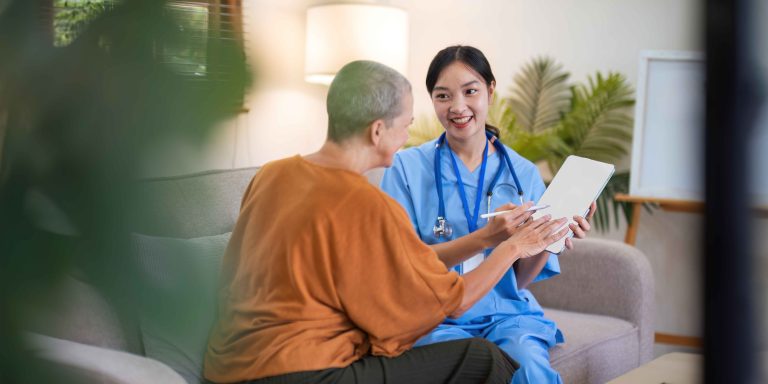Group Therapy Benefits
Choosing group therapy can have numerous benefits for those seeking personal growth and addressing mental health concerns. Here, we discuss the effectiveness of group therapy and the ideal group size for optimal results.
Effectiveness of Group Therapy
Group therapy is a powerful treatment option that can be just as effective as individual therapy in addressing substance use disorders and co-occurring mental health issues American Addiction Centers. One of the significant advantages is the communal aspect, where participants can share their experiences, gain insights from others, and receive guidance and comfort under the supervision of a therapist.
Research shows that group therapy can help individuals:
- Maintain abstinence from substance use
- Support co-occurring mental health disorders
- Promote self-awareness and personal growth
Additionally, positive psychology has been integrated into group therapy, enhancing treatment outcomes by nurturing psychological virtues such as humanity, wisdom, and courage. Studies have demonstrated that group therapy supported by attachment theory and mentalization can lead to improved relationships and self-respect (NCBI).
Ideal Group Size
The size of the therapy group plays a crucial role in the effectiveness of the treatment. An ideally sized group allows for meaningful interactions without becoming too overwhelming or impersonal.
| Group Size | Characteristics | Effective For |
|---|---|---|
| 4-6 members | Intimate setting, high interaction | Deep personal sharing, intensive work |
| 7-10 members | Balanced interaction, diverse perspectives | Moderate sharing, broader insights |
| 11-15 members | Varied input, less individual attention | General support, less intensive focus |
In general, a group size of 7-10 members is often considered ideal for striking a balance between diverse viewpoints and opportunities for personal interaction. This size allows participants to engage deeply, receive adequate attention, and benefit from the richness of shared experiences. It also fosters a supportive environment where members can develop healthy attachments and improve their social skills (see our article on the importance of mental health counseling in today’s world).
By optimizing group size, therapists can ensure that each member receives the support they need while participating in a dynamic and engaging group experience. For more detailed information on finding the right therapy for you, check out how to find the best therapist near you and exploring different types of psychotherapy: which one fits your needs?.
Understanding the benefits and optimal structure of group therapy can help individuals make informed decisions about their mental health treatment. For additional resources, explore understanding cognitive behavioral therapy (cbt): is it right for you? and the benefits of online counseling services for mental health.
Substance Use Treatment
Role in Maintaining Abstinence
Group therapy is an essential tool in the treatment of substance use disorders. At The Hope Wellness Center in Newport, we believe that the support and interaction found in group therapy are crucial for maintaining abstinence. According to American Addiction Centers, group therapy provides insight, guidance, and comfort under a therapist’s direction.
Participants in group therapy can share their struggles and successes, which helps to foster a sense of community and mutual understanding. This supportive environment plays a significant role in helping individuals stay sober by providing consistent encouragement and accountability.
A study highlighted by PMC shows that group therapy for those with substance use disorders is effective in reducing family dysfunction, financial issues, and occupational problems, while improving overall quality of life, coping mechanisms, and self-efficacy. Below is a summary of these benefits:
| Benefit | Improvement (%) |
|---|---|
| Quality of Life | 75% |
| Coping Behavior | 68% |
| Self-Efficacy | 70% |
For a comprehensive overview of the different therapy methods, you might want to explore understanding cognitive behavioral therapy (cbt): is it right for you?.
Support for Co-Occurring Disorders
Group therapy also offers substantial support for individuals dealing with co-occurring disorders, such as mental health conditions alongside substance use issues. This dual approach is vital for addressing the complex needs of our clients. The multifaceted nature of group therapy allows participants to better understand their conditions, develop healthy interpersonal relationships, and strengthen self-respect.
Individuals can receive therapeutic benefits from the diverse perspectives and experiences shared within the group (Citizen Advocates). These shared experiences can lead to the development of effective strategies and problem-solving approaches tailored to each individual’s unique situations.
Moreover, the comprehensive approach of group therapy addresses multiple facets of an individual’s life. Therapy can be corrective, developmental, educative, preventive, recreational, and therapeutic (PMC). This holistic approach ensures that participants receive well-rounded support, fostering personal growth and promoting long-term recovery.
For more information on how to find the right mental health services, please visit our article on how to choose the right mental health therapist.
By understanding the substantial role group therapy plays in maintaining abstinence and supporting co-occurring disorders, we can appreciate its importance in fostering personal growth and sustaining recovery. At The Hope Wellness Center, we are dedicated to utilizing group therapy to help our clients achieve long-term sobriety and improved mental well-being. Explore the connection between physical and mental health to learn more about our holistic approach to treatment.
Models of Group Therapy
Group therapy offers a supportive environment for individuals struggling with various issues, including substance use disorders. Different models provide flexibility and cater to the unique requirements of participants. Let’s delve into the flexibility and adaptability of these models and their specific benefits for substance use disorders.
Flexibility and Adaptability
Group therapy models are known for their flexibility, allowing therapists to tailor the sessions according to the group’s needs and goals. This adaptability is crucial for addressing the diverse experiences of group members. According to the American Addiction Centers, adaptable group therapy sessions enhance their overall effectiveness.
Some common models of group therapy include:
- Support Groups: Focus on sharing experiences, providing mutual encouragement and practical advice.
- Skills Development Groups: Aim to teach coping strategies and problem-solving skills.
- Cognitive-Behavioral Therapy (CBT) Groups: Use structured techniques to address negative thought patterns and behaviors.
Therapists can shift between these models or integrate elements from each, ensuring the group therapy sessions meet the varying needs of participants. This flexibility is especially beneficial in situations involving co-occurring mental health disorders and substance use, where tailored approaches can dramatically improve outcomes.
Benefits for Substance Use Disorders
Group therapy has proven to be a valuable tool in treating substance use disorders. Participating in group therapy helps individuals achieve and maintain abstinence, provides support for co-occurring mental health disorders, and enhances overall quality of life (American Addiction Centers, PMC).
Key Benefits:
- Maintenance of Abstinence: Sharing experiences with peers who have similar struggles can foster a sense of community, which is crucial in maintaining sobriety.
- Support for Co-Occurring Disorders: Group therapy provides a supportive environment where individuals can learn about and manage co-occurring mental health issues.
- Enhanced Coping Behavior: Skills and strategies learned in group settings help participants handle stress, resist triggers, and apply healthier behaviors.
- Improved Quality of Life: Regular participation can alleviate family dysfunction, improve financial and occupational stability, and increase self-efficacy.
| Group Therapy Benefits for Substance Use Disorders | Impact on Participants |
|---|---|
| Maintenance of Abstinence | High |
| Support for Co-Occurring Disorders | Moderate |
| Enhanced Coping Behavior | High |
| Improved Quality of Life | Significant |
Additionally, recent developments in positive psychology applied to group therapy provide unique growth opportunities, enhancing treatment effectiveness. This approach nurtures psychological virtues such as humanity, wisdom, courage, temperance, and justice (NCBI). By focusing on the development of these virtues, group therapy models foster a holistic improvement in participants’ well-being.
Understanding the flexibility and benefits of different group therapy models can guide individuals toward choosing the right approach for their specific needs. For more information on different types of psychotherapy, visit our article on exploring different types of psychotherapy: which one fits your needs?. If you are considering therapy for yourself or a loved one, you may also find our guide on how to choose the right mental health therapist helpful.
Psychological Effects
Group therapy offers a host of psychological benefits that contribute significantly to personal growth. At The Hope Wellness Center in Newport, RI, we specialize in leveraging these effects to enhance the well-being of our clients. Two primary psychological effects of group therapy are the development of healthy attachments and the improvement of social skills.
Healthy Attachments
Healthy attachments form the cornerstone of effective group therapy. Through interaction with others facing similar challenges, participants can build meaningful connections. Group therapy fosters a sense of camaraderie and fellowship, creating a safety net that boosts confidence (Citizen Advocates). This newfound confidence empowers individuals to extend themselves beyond the group setting, knowing they have a supportive network to rely on even when faced with challenges.
In the context of substance abuse treatment, these attachments play a critical role in maintaining abstinence. Positive feedback and advice from fellow group members create a sense of accountability, motivating individuals to achieve their goals and sustain progress. This dynamic is particularly effective in supporting co-occurring mental health disorders (American Addiction Centers). For more on how group therapy can aid in maintaining abstinence, visit our section on the support for co-occurring disorders.
Improved Social Skills
Improved social skills are another significant psychological benefit of group therapy. Interacting with peers in a therapeutic environment allows participants to share their problems and concerns, thereby enhancing their interpersonal relationships (Oxford Treatment Center). This interaction helps individuals gain a better understanding of themselves, strengthen their self-respect, and develop healthier relationships in their personal lives.
Group therapy also facilitates self-discovery by allowing individuals to uncover blind spots about themselves. These blind spots, often unnoticed in everyday interactions, can impede progress in addressing personal issues. Feedback from group members offers different perspectives, helping individuals to identify and address these blind spots, thereby enhancing their coping abilities in difficult situations.
At The Hope Wellness Center, we integrate these benefits into our comprehensive therapeutic approach, which includes a variety of psychotherapy types. By focusing on the psychological effects of group therapy, we aim to provide a holistic pathway to personal growth and well-being.
| Benefit | Description |
|---|---|
| Healthy Attachments | Fosters camaraderie and fellowship, creating a safety net that boosts confidence and supports progress. |
| Improved Social Skills | Enhances interpersonal relationships through peer interaction, self-discovery, and addressing personal blind spots. |
For a deeper dive into how group therapy can improve social skills and self-discovery, you may find our articles on mental health counseling in today’s world and integrating mindfulness into therapy particularly insightful.
Therapy Sessions Details
Frequency and Duration
At The Hope Wellness Center in Newport, RI, we understand the importance of structured therapy sessions for optimal personal growth. Group therapy sessions are designed to be conducted with 8-12 members per session, which helps in maintaining a balanced interaction among participants.
To cater to the diverse schedules and needs of individuals, group therapy sessions can be organized once a week or even 3-4 times a week. The duration of these sessions typically ranges between 45 to 90 minutes, ensuring enough time for meaningful interactions without causing fatigue.
Our professional team recommends sustaining group therapy for up to a maximum of 25 sessions or six months. This timeframe allows participants to fully benefit from the therapeutic process and see tangible improvements in their mental health and overall well-being.
Here is a table summarizing the frequency and duration details:
| Frequency | Duration | Group Size | Total Sessions |
|---|---|---|---|
| Once a week | 45-90 minutes | 8-12 members | Maximum of 25 sessions |
| 3-4 times a week | 45-90 minutes | 8-12 members | Maximum of 25 sessions or six months |
Impact on Substance Use
Group therapy has been shown to be particularly effective in substance use treatment. According to research, group therapy helps individuals maintain abstinence, provides support for co-occurring mental health disorders, and promotes insight, guidance, and comfort under a therapist’s guidance (American Addiction Centers).
Here are some positive impacts of group therapy on substance use:
- Reduced Substance Use: Group therapy has proven effectiveness in reducing substance use, thereby helping participants make long-lasting changes.
- Improved Quality of Life: The interaction and support from peers improve coping behaviors, self-efficacy, and overall quality of life.
- Enhanced Social Skills: Participants develop healthier attachments and social skills within the safe environment of the group.
- Reduced Dysfunction: Group therapy addresses family dysfunction, financial problems, and occupational challenges, helping participants regain control over various aspects of their lives.
To learn more about how group therapy sessions can help with substance abuse and promote personal growth, consider reading our article on the advantages of telehealth therapy services.
For those who need adjunct therapies, exploring different types of psychotherapy can be beneficial. Find out more in our guide on exploring different types of psychotherapy.
By integrating these structured sessions into one’s routine, individuals can see remarkable improvements in their mental health and overall well-being. For additional support, consider reading about understanding cognitive behavioral therapy (cbt): is it right for you?.
Mindfulness-Based Interventions
Mindfulness-based interventions (MBIs) play a significant role in enhancing personal growth through group therapy settings. Widely praised for their numerous benefits, these therapies facilitate a higher quality of life and a reduction in various psychological symptoms.
Positive Psychological Effects
Mindfulness fosters various positive psychological effects in individuals participating in group therapy. According to PubMed Central:
- Increased subjective well-being
- Reduced psychological symptoms and emotional reactivity
- Improved behavioral regulation
Additionally, mindfulness promotes attributes such as empathy, optimism, and agreeableness, while mitigating conditions like depression, rumination, and social anxiety. This holistic approach makes significant strides in enhancing life satisfaction and emotional health.
Positive traits like life satisfaction and empathy have pronounced benefits, while negative aspects such as depression and social anxiety show a marked decrease. The following table provides a comparative look:
| Trait | Positive Correlation | Negative Correlation |
|---|---|---|
| Life Satisfaction | ✔️ | |
| Empathy | ✔️ | |
| Optimism | ✔️ | |
| Depression | ✔️ | |
| Social Anxiety | ✔️ |
For more information on the benefits of mindfulness, visit the benefits of integrating mindfulness into therapy.
Effectiveness in Treatment
Mindfulness-based interventions, including Mindfulness-Based Stress Reduction (MBSR) and Mindfulness-Based Cognitive Therapy (MBCT), have shown remarkable effectiveness in therapy outcomes. Since the late 1970s, these methods have been pivotal in improving mental health conditions. Research from PubMed Central highlights:
- Reduction in anxiety, depression, and anger
- Decrease in rumination and general psychological distress
- Enhanced positive affect, life satisfaction, and quality of life
Studies on MBCT, in particular, reveal its role in reducing relapse rates among patients with three or more episodes of depression. It also significantly improves the quality of life and manages residual depressive symptoms among remitted depressed patients. For a more in-depth exploration of different therapies, check out understanding cognitive behavioral therapy (cbt): is it right for you?.
By integrating these mindfulness-based interventions within group therapy at The Hope Wellness Center, we ensure that our clients receive comprehensive treatment conducive to long-term well-being and personal growth. For additional details on effective therapy practices, see how to choose the right mental health therapist.











